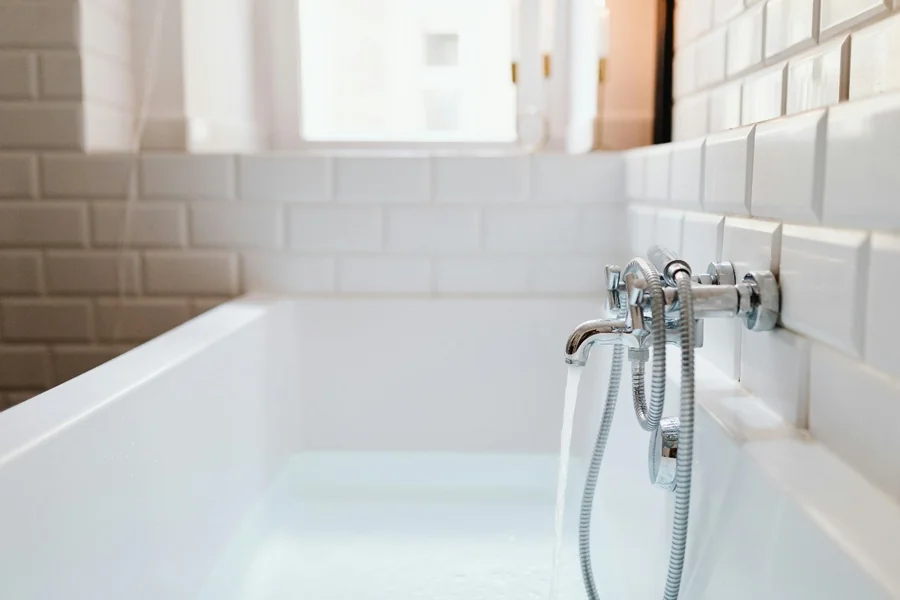You probably don’t think about your plumbing system much until something goes wrong. Maybe it’s a faucet that starts dripping in the middle of the night or a shower that suddenly runs cold just when you’re getting ready for work. These little inconveniences are often signs of bigger issues hiding in your pipes, drains, or fixtures. And if you don’t catch them early, they can turn into expensive repairs.
Caring for your home’s plumbing doesn’t have to be complicated. By staying on top of a few basic maintenance habits, you can keep everything running smoothly, save money on repairs, and avoid the stress of unexpected breakdowns. From inspecting pipes and clearing drains to keeping your water heater in good shape, a little preventive care goes a long way.
One of the smartest places to start is with the system that plays a key role in your daily comfort, your water heater. Whether it’s for showers, laundry, or washing dishes, hot water is something you depend on every day. Taking care of this essential appliance is just as important as keeping the rest of your plumbing in top shape.
Start with Your Water Heating System
Your water heater is more than just a convenience. It’s an essential part of your plumbing system that impacts everything from your morning routine to your monthly energy bill. If your home has a tankless model, it’s important to understand that it operates differently from traditional storage tanks. Tankless systems heat water on demand, which means they’re more energy-efficient, but they also need regular upkeep to perform at their best.
Scheduling tankless water heater maintenance ensures you avoid problems like mineral buildup, fluctuating water temperatures, or reduced water flow. Over time, minerals in the water can accumulate inside the unit, affecting performance and potentially causing damage. Maintenance helps flush out these deposits, check filters, and inspect all components so your heater runs efficiently and lasts longer.
It isn’t just about preventing breakdowns. It’s also about keeping your energy costs low and ensuring you always have a reliable hot water supply. A professional can perform a thorough inspection and cleaning, but you can also help by being mindful of signs like unusual noises, inconsistent water pressure, or sudden temperature changes. Addressing these early can save you from costly repairs later on.
Regularly Inspect for Leaks and Drips
Leaks may seem minor, but they can waste a surprising amount of water and lead to higher utility bills. More importantly, they can cause damage to cabinets, floors, and walls if left unaddressed. Get into the habit of checking under sinks, behind toilets, and around appliances like dishwashers or washing machines.
Even a slow drip can add up over time, so it’s best to fix issues as soon as you spot them. Sometimes a leak can be as simple as a worn washer that you can replace yourself, but other times it’s a sign of a bigger plumbing problem that needs a professional’s attention.
Keep Your Drains Clear
Clogged drains are one of the most common plumbing headaches, and they’re usually preventable. Avoid pouring grease, coffee grounds, or food scraps down the kitchen sink, as they can create stubborn blockages. In the bathroom, use a drain cover to catch hair and soap residue before they go down the drain.
If you notice water draining slowly, act quickly to prevent a complete clog. You can use a plunger or a simple drain snake to clear small blockages. Chemical drain cleaners are tempting, but they can damage your pipes over time, so it’s better to use mechanical or natural cleaning methods.
Protect Pipes from Temperature Extremes
Your plumbing is vulnerable to damage from extreme temperatures. In colder climates, freezing pipes are a major concern. When water freezes, it expands, potentially bursting pipes and resulting in expensive repairs. Insulating exposed pipes, especially those in basements, attics, or exterior walls, is an effective way to prevent this.
In warmer regions, high temperatures can also put stress on plumbing systems. Heat can cause certain materials to expand and weaken over time. Regular inspections can help you catch potential issues before they cause leaks or other problems.
Maintain Water Pressure and Quality
Water pressure that’s too high might feel great in the shower, but it can strain your pipes, joints, and appliances, leading to leaks and shorter lifespans. Ideally, your home’s water pressure should be between 40 and 60 psi. You can use an inexpensive gauge to test it and, if needed, have a pressure regulator installed.
Water quality also plays a big role in the health of your plumbing. Hard water can leave mineral deposits in your pipes and appliances, reducing efficiency. A water softener or filtration system can help protect your plumbing and improve the taste and safety of your water.
Know When to Call a Professional
While it’s great to handle minor maintenance yourself, there are times when you need an expert. Major leaks, sewer line issues, persistent low water pressure, or problems with your water heater are best left to professionals. Attempting complex repairs without the right tools and knowledge can cause more harm than good.
Consider scheduling an annual plumbing inspection to catch problems early. A plumber can check your system for leaks, corrosion, and blockages, and ensure everything is functioning properly. This proactive approach can save you from unexpected emergencies.
Taking care of your plumbing system doesn’t have to be overwhelming. By focusing on simple, regular habits like checking for leaks, keeping drains clear, protecting pipes, and maintaining key appliances like your water heater, you can prevent costly problems and keep your home running smoothly.
Start small. Pick one or two habits from this guide to work on this week. Over time, these routines will become second nature, and your plumbing will thank you for it. The peace of mind you get from knowing your home’s systems are in good shape is well worth the effort.






